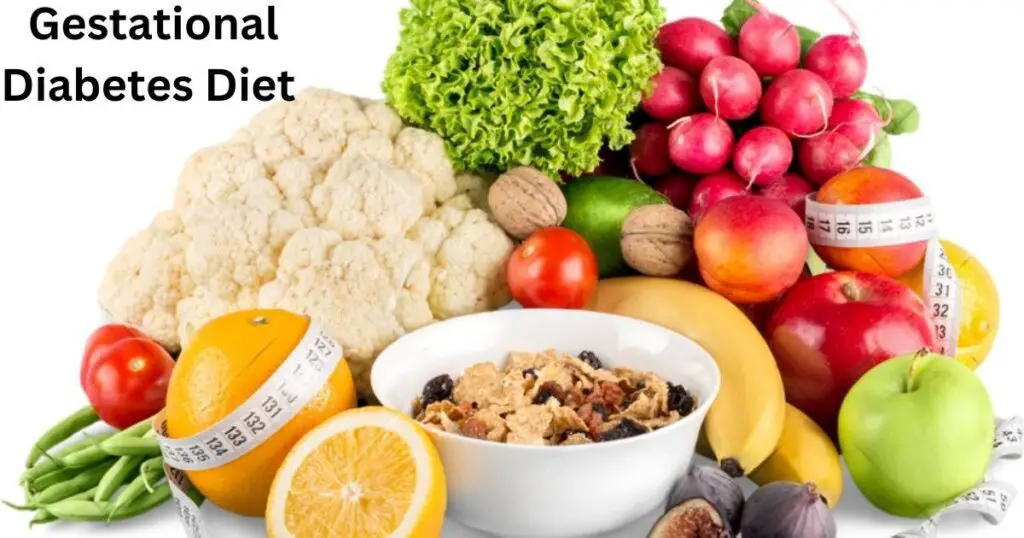In this comprehensive guide, I delve into the critical topic of gestational diabetes and its impact on expectant mothers. Navigating the intricate realm of pregnancy complications, I shed light on the top three foods to avoid for those dealing with gestational diabetes. This article aims to provide not just a list of restrictions, but an understanding of why certain food choices matter during this crucial period. As I unravel the complexities of managing gestational diabetes, my focus remains on empowering mothers-to-be with actionable insights for crafting a wholesome and nourishing diet. Join me as I explore the delicate balance between cravings and health, ensuring a vibrant and healthy pregnancy journey.
1. Understanding Gestational Diabetes
Gestational diabetes is a temporary form of diabetes that occurs during pregnancy. It develops when the body can’t produce enough insulin to meet the increased needs, leading to high blood sugar levels. This condition poses potential risks to both the mother and the baby.
Definition and Causes
Gestational diabetes is defined as high blood sugar that develops during pregnancy. It’s not a result of prior diabetes but arises due to hormonal changes affecting insulin production. Factors like genetics, age, and obesity can contribute to its occurrence.
Impact on Pregnancy and Baby’s Health
This condition can affect the pregnancy by increasing the risk of complications such as preeclampsia and the need for a cesarean delivery. Additionally, gestational diabetes may lead to excessive fetal growth, making labor more challenging. For the baby, there’s a heightened risk of low blood sugar after birth and a higher likelihood of developing type 2 diabetes later in life. Understanding these aspects is crucial for effective management and a healthy pregnancy journey.
2. Top 3 Foods to Avoid with Gestational Diabetes
These are the top 3 foods to avoid with gestational diabetes:
Simple Carbohydrates
Explanation of Simple Carbohydrates
Simple carbohydrates are quickly broken down into sugars, causing rapid spikes in blood sugar levels. Understanding this is crucial for managing gestational diabetes.
Examples of Foods to Avoid
Steer clear of sugary snacks, candies, and refined grains like white bread. These contribute to elevated blood sugar levels and can be detrimental during pregnancy.
Alternative, Healthier Options
Opt for complex carbohydrates found in whole grains, fruits, and vegetables. These release energy gradually, helping to maintain stable blood sugar levels.
Highly Processed Foods
Identification of Processed Foods
Processed foods often contain hidden sugars, unhealthy fats, and additives. Identifying these items is essential for creating a gestational diabetes-friendly diet.
Risks Associated with Processed Foods
Consuming processed foods may lead to weight gain, exacerbate insulin resistance, and increase the risk of complications. Being mindful of these risks is crucial for overall health.
Whole Food Alternatives
Choose whole, unprocessed foods such as fresh fruits, vegetables, lean proteins, and whole grains. These provide essential nutrients without the negative impact of processed alternatives.
Excessive Sugar Intake
Dangers of High Sugar Intake
High sugar intake can lead to spikes in blood sugar levels, contributing to insulin resistance and potential complications. Recognizing the dangers is vital for effective gestational diabetes management.
Hidden Sugars in Common Foods
Be aware of hidden sugars in seemingly healthy foods like flavored yogurts and sauces. Reading labels can help identify and avoid these hidden sources.
Sugar Substitutes and Alternatives
Explore natural sweeteners like stevia or opt for moderate portions of fruits to satisfy sweet cravings. Balancing sweetness without compromising health is key during pregnancy.
3. Crafting a Gestational Diabetes-Friendly Diet
Incorporating Complex Carbohydrates
Benefits of Complex Carbohydrates
Complex carbohydrates, found in whole grains and legumes, provide sustained energy, preventing rapid blood sugar spikes. Understanding their benefits is key to a balanced gestational diabetes-friendly diet.
Examples of Gestational Diabetes-Friendly Carbs
Choose nutrient-dense options like quinoa, sweet potatoes, and oats. These alternatives contribute essential vitamins and minerals without compromising blood sugar levels.
Meal Planning Tips
Plan meals with a mix of complex carbohydrates, lean proteins, and vegetables. This helps in achieving a well-rounded and satisfying diet, promoting stable blood sugar throughout the day.
Balancing Proteins and Fats
Importance of Protein and Healthy Fats
Proteins aid in maintaining muscle mass and stabilizing blood sugar levels, while healthy fats are essential for overall well-being. Recognizing their significance is crucial for a balanced gestational diabetes-friendly diet.
Sources of Lean Protein and Healthy Fats
Include lean proteins like poultry, fish, and legumes, along with sources of healthy fats such as avocados, nuts, and olive oil. These choices provide essential nutrients without compromising blood sugar control.
Creating a Balanced Plate
Construct meals with a balance of proteins, fats, and carbohydrates. Incorporate a variety of colorful vegetables to enhance nutritional value. This approach ensures a satisfying and nourishing diet while effectively managing gestational diabetes.


4. Expert Advice and Tips
Quotations or Advice from Reputable Sources
Incorporate wisdom from renowned healthcare professionals and nutritionists. Their insights provide a foundation of credibility and assurance, guiding individuals through the intricacies of managing gestational diabetes.
Tips for Managing Gestational Diabetes through Diet
Empower yourself with practical tips endorsed by experts. This section aims to offer actionable advice on making informed dietary choices. From portion control to smart substitutions, these tips serve as a roadmap for navigating the challenges of gestational diabetes, fostering a healthier and more confident pregnancy journey.
Conclusion
In wrapping up, remember the key to managing gestational diabetes lies in mindful dietary choices. By avoiding simple carbohydrates, processed foods, and excessive sugar intake, you take significant steps towards stabilizing blood sugar levels. Your commitment to a balanced gestational diabetes-friendly diet, rich in complex carbohydrates, lean proteins, and healthy fats, ensures optimal nutrition for both you and your baby. Embrace the journey with confidence, armed with expert advice and practical tips. As you navigate this period, let your focus on wholesome, nourishing choices be your guide. Together, we embark on a path to a healthy, balanced pregnancy, fostering well-being and resilience.
Frequently Asked Questions (FAQs)
Q1. Can I still enjoy carbohydrates during gestational diabetes?
Absolutely! Opt for complex carbohydrates like quinoa and sweet potatoes for sustained energy without compromising blood sugar levels.
Q2. Are all processed foods off-limits?
While processed foods should be limited, choose whole alternatives and prioritize fresh fruits, vegetables, and lean proteins.
Q3. What are some expert-recommended meal planning tips?
Craft well-rounded meals with a mix of complex carbs, proteins, and veggies for a satisfying and gestational diabetes-friendly diet.
Q4. Can I use sugar substitutes during pregnancy?
Yes, consider natural sweeteners like stevia, but moderate their use and focus on the sweetness found in fruits.
Q5. How can I ensure a balanced plate with proteins and fats?
Include lean proteins such as fish and legumes, along with healthy fats like avocados, for a nutritionally balanced gestational diabetes-friendly plate.

